
News |
- First Nations: Canada Should Embrace UN Declaration
- Toronto Cuts Idling Limit to 1 Minute
- Canadian Farmers Seed Saving in Jeopardy
- Oxfam's Gender Justice Summit in Toronto
- Truth and Reconciliation Event in Winnipeg
- Environmental Bill of Rights Fails Second Reading
- Environmental Assessment and the Budget
- Climate Accountability Bill in Senate's Hands
- Heads Up for Manitoba's Birds
- New Zealand Affirms Rights of Indigenous Peoples
- Scientists' Decry Assault on Science Integrity
- World Interfaith Summit
| First Nations: Canada Should Embrace UN Declaration | 19 May 10 |
 Indigenous Peoples, human rights and faith based organizations welcomed the announcement that the Canadian government is taking steps to endorse the United Nations Declaration on the Rights of Indigenous Peoples. Indigenous Peoples, human rights and faith based organizations welcomed the announcement that the Canadian government is taking steps to endorse the United Nations Declaration on the Rights of Indigenous Peoples.The UN Declaration provides a principled framework for partnership and reconciliation between states and Indigenous Peoples. Its provisions provide much needed guidance to governments, state institutions and society as a whole on how human rights laws and obligations can be best understood and applied to the distinct circumstances and urgent needs of 370 million Indigenous People around the world. There are calls for Canada's government to work in genuine partnership with Indigenous Peoples for unqualified endorsement and full implementation of the Declaration. Groups also highlight that an endorsement must honour the spirit and intent of the Declaration consistent with Indigenous Peoples' human rights. This statement was signed by Assembly of First Nations; Inuit Circumpolar Council Canada; Inuit Tapiriit Kanatami; Native Women's Association of Canada; Assemblée des Premières Nations du Québec et du Labrador; Union of British Columbia Indian Chiefs; Chiefs of Ontario; Grand Council of the Crees (Eeyou Istchee); Innu Council of Nitassinan; Amnesty International; Canadian Friends Service Committee (Quakers); KAIROS: Canadian Ecumenical Justice Initiatives, among several others. View April 23, 2010 Indigenous Peoples Issues & Resources articleView United Nations Declaration on the Rights of Indigenous Peoples Visit United Nations Forum on Declaration on the Rights of Indigenous Peoples View February 22, 2010 British Columbia All Chiefs' Task Force media release (PDF) Source: Indigenous Peoples Issues and Resources |
|
 Print version Print version |
Top |
| Toronto Cuts Idling Limit to 1 Minute | 19 May 10 |
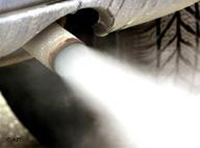 Toronto has moved to toughen its idling bylaw, slapping motorists with a $125 ticket if they are caught with engines running for more than a minute. Currently, the fine applies to anyone who idles for more than three minutes. The changes approved by the Toronto Board of Health includes parking enforcement officers being given the power to ticket idlers. Toronto has moved to toughen its idling bylaw, slapping motorists with a $125 ticket if they are caught with engines running for more than a minute. Currently, the fine applies to anyone who idles for more than three minutes. The changes approved by the Toronto Board of Health includes parking enforcement officers being given the power to ticket idlers.A report presented to theToronto Board of Health estimates idling wastes 90-million litres of fuel a year in the Greater Toronto Area (GTA), which suggests over 105 million tonnes of CO2 are released while vehicles idle, every year. "It should be an easy win to get rid of idling," states Dr. McKeown, who said emissions from motor vehicles are responsible for 440 premature deaths, and 1,700 hospitalizations. The Board of Health also voted to limit exemptions to the bylaw, making it less likely for transit vehicles to idle, and eliminating exemptions for extreme temperatures. Currently, transit buses are allowed to idle for 15 minutes. Police, fire and ambulance are exempt when idling is not "substantially" for convenience. View May 4, 2010 National Post articleView City of Toronto's Current Idling Control By-law View April 26, 2010 Toronto Star article Source: The National Post, Toronto Star |
|
 Print version Print version |
Top |
| Canadian Farmers Seed Saving in Jeopardy | 19 May 10 |
 The National Farmers Union (NFU), a member of the newly formed Trade Justice Network, has released previously undisclosed draft text of the Canada-EU Comprehensive Economic and Trade Agreement (CETA). The National Farmers Union (NFU), a member of the newly formed Trade Justice Network, has released previously undisclosed draft text of the Canada-EU Comprehensive Economic and Trade Agreement (CETA)."CETA would give seed companies enforcement and confiscation powers pertaining to all other seeds – those that do not contain patented genes – that exceeds even the powers that companies possess for their gene-patented varieties," said NFU President Terry Boehm during an April 21, 2010 pres release in Ottawa. Boehm went on to explain that CETA would give seed companies the power to seize crops, farm property, seeding and harvest equipment, and freeze farmers' assets. Seed companies would also have a veto power over independent seed cleaners. "If farmers can't get their farm-saved seeds cleaned, farmers can't save and re-use seed," elaborated Boehm. View April 21, 2010 National Farmers Union press release (PDF)View April 19, 2010 Council of Canadians media release View April 17, 2010 Sierra Club article Source: National Farmers Union |
|
 Print version Print version |
Top |
| Oxfam's Gender Justice Summit in Toronto | 19 May 10 |
 The weekend before the G20 summit, Oxfam will host a Gender Justice Summit in Toronto June 18-20, 2010. Held at Ryerson University, and part of the People’s Summit, The Gender Justice Summit will be a dynamic gathering of Oxfam supporters, academics, advocates, researchers, policy-makers, and activists from around the world. The themes of the summit will include gender-based violence, maternal health, poverty, security, climate change, food security and more. The weekend before the G20 summit, Oxfam will host a Gender Justice Summit in Toronto June 18-20, 2010. Held at Ryerson University, and part of the People’s Summit, The Gender Justice Summit will be a dynamic gathering of Oxfam supporters, academics, advocates, researchers, policy-makers, and activists from around the world. The themes of the summit will include gender-based violence, maternal health, poverty, security, climate change, food security and more.Oxfam is an international aid and social justice organization, active in climate negotiations. Visit OxfamView The Peoples Summit website Source: Oxfam |
|
 Print version Print version |
Top |
| Truth and Reconciliation Event in Winnipeg | 19 May 10 |
 Canada's Truth and Reconciliation Commission (TRC) will hold it's first national event in Winnipeg, Manitoba June 16-19th, 2010. The event will take place at the Forks, a historical gathering place for Aboriginal people. The TRC was established by Canada's federal government when it apologized to Canada's Aboriginal Peoples for the impacts from residential school attendances. Canada's Truth and Reconciliation Commission (TRC) will hold it's first national event in Winnipeg, Manitoba June 16-19th, 2010. The event will take place at the Forks, a historical gathering place for Aboriginal people. The TRC was established by Canada's federal government when it apologized to Canada's Aboriginal Peoples for the impacts from residential school attendances.The Winnipeg event is the first of seven national events the TRC will hold over the next five years. Subsequent events will take place in Alberta, British Columbia, the Maritimes, Northern Canada, Quebec, and Saskatchewan. TRC Chair Justice Murray Sinclair said "This event is a first for former Indian Residential School students, and a first for Canada. My fellow Commissioners and I have made a commitment to former students that we will hear from as many of them as we are logistically and humanly able to." The national events are part of the TRC mandate and are intended to engage and educate the Canadian public about the Indian Residential School system. They will honour those whose lives were affected by residential schools and give those individuals an opportunity to present statements to the TRC. Visit Truth and Reconciliation Commission of Canada WebsiteView April 17, 2010 Ingenious Peoples article View September 21st, 2009 CBC News article Source: Truth and Reconciliation Commission Press Release |
|
 Print version Print version |
Top |
| Environmental Bill of Rights Fails Second Reading | 18 May 10 |
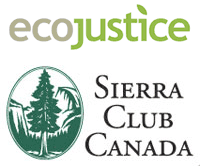 In June 2008 Ecojustice, on behalf of Friends of the Earth and Sierra Club Canada, put together model legislation for a Canadian Environmental Bill of Rights. In June 2008 Ecojustice, on behalf of Friends of the Earth and Sierra Club Canada, put together model legislation for a Canadian Environmental Bill of Rights."We are calling on our political leaders to rise above the gridlock of a minority government to embrace this transformative piece of legislation," stated Margot Venton, an Ecojustice lawyers who drafted the legislation. Linda Duncan, NDP MP for Edmonton-Strathcona, introduced Bill C-469, An Act to establish a Canadian Environmental Bill of Rights for first reading October 29, 2009. "There have been many public calls for an environmental bill of rights," declared Duncan when she reintroduced the Bill for second reading in the Canadian House of Commons Thursday May 6, 2010. The bill affirms a general right to a healthy environment, grants the public specific rights to access information, participate in lawmaking processes, review federal instruments, investigate alleged offences, and in specific cases seek recourse of the Federal Court against the Government of Canada for failing to live up to its duty to protect the environment. "The right to live in a healthy environment enjoys legal recognition in the majority of the world's nations. Canada is behind the curve, but this Bill offers the hope that we might catch up," said Ecojustice lawyer Margot Venton. The time for debate expired and the Bill dropped to the bottom of the order paper. It remains to be seen if Canada will ever enact an Environmental Bill of Rights. Both Quebec and Ontario have statutes that enshrine Environmental Rights into law. Read Bill C-469View June 5, 2008 Ecojustice release View May 6, 2010 Hansard Debates View November 5, 2009 Greenpages.ca news item View Environmental Law Centre News Brief Source: Government of Canada, Ecojustice, The Green Pages |
|
 Print version Print version |
Top |
| Environmental Assessment and the Budget | 12 May 10 |
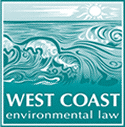 In winter 2008-2009 Canada's current Government prorogued Parliament, and re opened parliament introducing a budget that included amendments to the Navigable Water Protections Act that eliminated environmental assessments for development projects on Canadian waterways, with very few exceptions. In winter 2008-2009 Canada's current Government prorogued Parliament, and re opened parliament introducing a budget that included amendments to the Navigable Water Protections Act that eliminated environmental assessments for development projects on Canadian waterways, with very few exceptions.In 2010, after proroguing Parliament December 30, 2009, the Government has again introduced a budget bill that reduces legal and regulatory provisions under the Canadian Environmental Assessment Act to protect Canada's natural environment. In a May 10, 2010 letter to the Canadian Parliamentary Standing Committee on Finance, sixteen conservation and community organizations implore members of the Committee "...to object to these regressive changes that threaten Canada's environment." Changes include:
"By burying these significant changes deep within a towering, 900-page budget bill, the government has deliberately sought to hide these changes from public scrutiny, discussion or debate," says Josh Paterson, staff lawyer at West Coast Environmental Law in Vancouver. "That's why we're asking MPs on the Finance Committee to show environmental leadership by cutting these changes out of the Budget." View May 10, 2010 West Coast Environment Law press releaseView Bill C-9, An Act to implement certain provisions of the budget tabled in Parliament on March 4, 2010 and other measures View Save Canada's Environmental Laws! on Facebook View May 10, 2010 The Hook article View March 10, 2009 Manitoba Wildlands news item View May 12, 2010 The Mark article View January 21, 2010 Supreme Court of Canada Judgment View April 1, 2010 Liberal Party news release View May 18, 2010 The Globe and Mail article Source: West Coast Environment Law, Parliament of Canada |
|
 Print version Print version |
Top |
| Climate Accountability Bill in Senate's Hands | 12 May 10 |
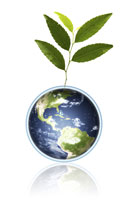 Bill C-311, known as The Climate Change Accountability Act, passed third reading in the Canadian House of Commons May 5th, 2010. Bill C-311, known as The Climate Change Accountability Act, passed third reading in the Canadian House of Commons May 5th, 2010.The following day, May 6 2010, an "Open Letter Supporting the Climate Change Accountability Act" was sent to all Members of the Canadian Senate. The letter was signed by twenty civil society organizations and urges the Senators to promptly pass Bill C-311. Manitoba Wildlands was amongst the signatories, which also include: Climate Action Network Canada, David Suzuki Foundation, Oxfam Canada, Sierra Club of Canada, National Union of Public and General Employees, Nature Canada, and WWF Canada. View open letter on the Climate Action Network Canada websiteView Bill C 311, as passed at third reading Read more on Manitoba Wildlands Source: Climate Action Network, Parliament of Canada |
|
 Print version Print version |
Top |
| Heads Up for Manitoba's Birds | 12 May 10 |
 Manitobans are being asked to help track the health, distribution, abundance, and breeding habits of bird species throughout Manitoba by participating in the creation of the first ever Manitoba Bird Atlas Project (MBAP). Manitobans are being asked to help track the health, distribution, abundance, and breeding habits of bird species throughout Manitoba by participating in the creation of the first ever Manitoba Bird Atlas Project (MBAP)."Anyone with a pair of binoculars and bird watching experience, or even a desire to learn about birds, can participate. You don't need to be an expert--we just ask that you are confident in the identification of the birds you report." Exlains the MBAP webpage. Courses in atlassing techniques are already being offered for those wanting to take part. Anyone interested in taking part can call Project Coordnator Christian Artuso, at 204-945-6816, or visit: http://www.birdatlas.mb.ca Although the Manitoba Naturalists Society released a publication, The Birds of Manitoba in 2003, Manitoba is behind other Canadian provinces in initiating a breeding bird atlas. Breeding bird atlases were first started in Europe in the late 1970's, and Saskatchewan had an atlas like project starting in the 1970's. The first official Canadian bird atlas was published by Ontario in 1987. Alberta and the Maritime Provinces published bird atlases in 1992, with Quebec following suit in 1995. Ontario and Alberta both released second editions in 2005, and the Maritimes and Quebec are in the process of likewise publishing a second edition. British Columbia, in 2007, announced that it was launching its own bird atlas program. "It's so important to have a comprehensive data set for the province, and it's something we [Manitobans] don't quite have yet," Artuso told the Winnipeg Free Press. Studies from the U.S., such as the State of the Birds report, indicate that over the past four decades bird numbers have declined across North America due to deforestation, pesticides, urban sprawl, and climate change. Obtaining accurate data, therefore, is vital to both: monitoring the health of the planet, and determining where conservation efforts are most needed. View Manitoba Breeding Bird Atlas websiteView Bird Life International website View April 10, 2010 Winnipeg Free Press article View The State of the Birds: 2010 Report on Climate Change (PDF) View more information Manitoba Wildlands' Biodiversity page Source: Manitoba Breeding Bird Atlas, Bird Life International |
|
 Print version Print version |
Top |
| New Zealand Affirms Rights of Indigenous Peoples | 12 May 10 |
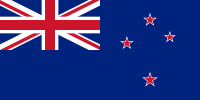 On April 19, 2010, Carlos Mamani, Chair of the United Nations Permanent Forum on Indigenous Issues (UNPFII) received a roaring applause when he stood up and declared, "I am very pleased that today, New Zealand has declared its support for the Declaration. In doing so, the Government of New Zealand has reaffirmed the principles of respect, non-discrimination and good faith enshrined in the Declaration." On April 19, 2010, Carlos Mamani, Chair of the United Nations Permanent Forum on Indigenous Issues (UNPFII) received a roaring applause when he stood up and declared, "I am very pleased that today, New Zealand has declared its support for the Declaration. In doing so, the Government of New Zealand has reaffirmed the principles of respect, non-discrimination and good faith enshrined in the Declaration.""Today's announcement restores our mana and our moral authority to speak in international fora on issues of justice, rights and peace," stated New Zealand's Minister of Maori Affairs, Dr. Pita Sharples. "While the declaration is non-binding, it both affirms accepted rights and establishes future aspirations. My objective is to build better relationships between Maori and the Crown, and I believe that supporting the declaration is a small but significant step in that direction," added New Zealand's Prime Minister, John Key. When the UN General Assembly adopted the UN Declaration on the Right of Indigenous Peoples (hereinafter simply Declaration) on September 13, 2007: 143 countries voted in favour, 11 abstained, while 4 countries (New Zealand, Australia, Canada, and the United States) opposed the Declaration. The day following New Zealand's announcement, Washington's U.N. Ambassador Susan Rice announced that the U.S. would be reviewing it's opposition to the Declaration. Canadian Governor General Michaelle Jean, in her March 03, 2010 Speech from the Throne, declared: "A growing number of states have given qualified recognition to the United Nations Declaration on the Rights of Indigenous Peoples. Our Government will take steps to endorse this aspirational document in a manner fully consistent with Canada's Constitution and laws," Despite the apparent reversal of positions, it remains to be seen when Canada or the U.S. will affirm the Declaration, or what caveats they will demand in return. View more information on the UN websiteView the United Nations Declaration on the Rights of Indigenous Peoples View the 2010 Canadian Speech from the Throne View April 19, 2010 United Nations press release View April 20, 2010 New Zealand Government (office of Pita Sharples) press release View April 20, 2010 New Zealand Government (office of John Key) press release View April 20, 2010 The New Zealand Herald article View April 23, 2010 Indian Country Today article View May 3, 2010 Indian Country Today article Source: United Nations website, New Zealand Government |
|
 Print version Print version |
Top |
| Scientists' Decry Assault on Science Integrity | 12 May 10 |
 "We are deeply disturbed by the recent escalation of political assaults on scientists in general and on climate scientists in particular," begins a statement signed by more than 250 U.S. scientists published in the May 2, 2010 edition of Science. "We are deeply disturbed by the recent escalation of political assaults on scientists in general and on climate scientists in particular," begins a statement signed by more than 250 U.S. scientists published in the May 2, 2010 edition of Science. "Science never absolutely proves anything, but 'well-established scientific theories' are often spoken of as 'facts'. Climate change now falls into this category: There is compelling, comprehensive, and consistent objective evidence that humans are changing the climate in ways that threaten our societies and the ecosystems on which we depend. Like all human beings, scientists make mistakes. When errors are pointed out, they are corrected. But there is nothing remotely identified in the recent events that changes the fundamental conclusions about climate change." In recent months climate change deniers, and some mainstream media have seized on small technical errors, claiming these errors disprove the theory of human caused global warming. Obviously bothered by such distortions the consortium of scientists have banded together in urging "... policy-makers and the public to move forward immediately to address the causes of climate change, including unrestrained burning of fossil fuels." View May 7, 2010 Science Mag letterView May 13, 2010 PlanetArk article Source: Science Mag |
|
 Print version Print version |
Top |
| World Interfaith Summit | 12 May 10 |
 Since 2005, faith leaders from around the world have met in parallel to the G8 leaders' summits. The 2010 Interfaith Summit takes place at University of Winnipeg, June 21-23. The interfaith leaders gather to challenge the G8 Nations to live up to previous commitments, especially in ways that based on compassion and hope. Since 2005, faith leaders from around the world have met in parallel to the G8 leaders' summits. The 2010 Interfaith Summit takes place at University of Winnipeg, June 21-23. The interfaith leaders gather to challenge the G8 Nations to live up to previous commitments, especially in ways that based on compassion and hope.The annual interfaith summit releases the Faith Leaders Statement. The Faith Leaders Statement underscores G 8 commitments to the Millennium Development Goals and processes that move toward equity and justice. As the G 8 has evolved into both G 8 and G20 meetings, the faith leaders have also addressed the G 20. The 2010 Faith Leaders Statement, A Time for Inspired Leadership and Action, calls on global leaders to:
View G8/G20 2010 Interfaith Partnership Online Petition View Faith Leader's Current and Previous Summit Statements View United Nations Millennium Development Goals Website View WorldShift 2012 website Source: World Religions Summit Website |
|
 Print version Print version |
Top |


 RSS Feeds:
RSS Feeds: